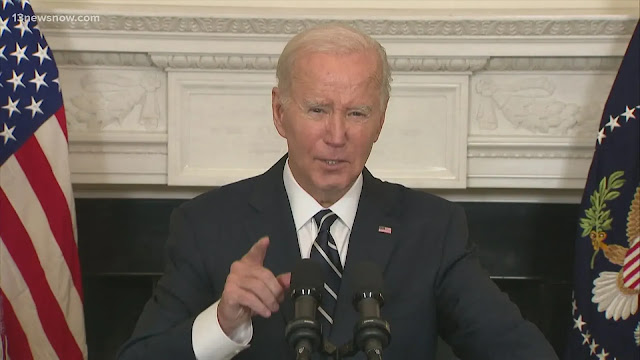 |
| Image: AI |
A controversial pattern of defense stock purchases by Congressional leaders has emerged ahead of rising tensions between Israel and the Palestinian militant group Hamas. With the specter of violence looming, key Congress members seem to be strategically investing in military and cybersecurity firms poised to profit from an outbreak of conflict.
The recent buy-up of defense stocks aligns with a disturbing precedent of Congress members making investment decisions potentially informed by classified intelligence and forthcoming military operations. This raises significant ethical questions around personal financial motivations influencing delicate policy decisions surrounding war and peace.
Surge in Defense Contractor General Dynamics
According to financial disclosures, General Dynamics (NYSE: GD) — a major defense contractor providing weapons systems, munitions, shipbuilding and IT services to the U.S. government — has seen a marked increase in share purchases by Congressional members in recent weeks. This buying frenzy appears timed to capitalize on an impending spike in demand for General Dynamic’s offerings should violence erupt between the Israeli Defense Forces (IDF) and Palestinian militant groups like Hamas.
General Dynamics produces critical hardware utilized by the IDF including the F-16 fighter jet, M1 Abrams battle tank, and Namer armored personnel carriers. With the ceasefire between Israel and Hamas fracturing since May 2021, investors seem to be banking on General Dynamics profiting from restocking the IDF’s arsenal. The recent Congressional stock moves suggest insider knowledge of just how imminent a return to open conflict in the region may be.
Republicans Target Energy While Democrats Build Cybersecurity Positions
Beyond the predictable purchases of defense contractor stocks, an interesting divergence has emerged between Republican and Democratic Congress members’ investment strategies.
Numerous high-profile Congressional Republicans including Michael McCaul of Texas, Kevin Hern of Oklahoma and Michael Guest of Mississippi have been loading up on shares of major energy companies like Exxon Mobil (NYSE: XOM), Devon Energy (NYSE: DVN) and Chevron (NYSE: CVX).
This push into the oil and gas sector seems to speculate that a bloody war in the Middle East could cause crippling supply chain disruptions and a spike in already high fuel prices. With gas prices a political lightning rod, these savvy Congressional investors may be positioning themselves to profit from turmoil half a world away.
Across the aisle, key Congressional Democrats have taken a longer view — targeting cybersecurity stocks as the Russia-Ukraine conflict has underscored the critical nature of defending critical infrastructure against cyber attacks.
Democrats including Debbie Frankel of Florida, Rick Larsen of Washington and Kurt Schrader of Oregon have recently built significant positions in cybersecurity leaders like Fortinet (NASDAQ: FTNT). The escalating cyber war aspects of modern conflict have turned cybersecurity into a clear growth industry. This move could offer major upside whether the Israel-Hamas conflict goes hot in the short term or simply remains a lingering threat.
Are Personal Finances Influencing Foreign Policy?
While these stock purchases remain legal, they point to a moral hazard where personal finance may be unduly influencing Congressional members’ policy stances. With millions of dollars suddenly at stake in their brokerage accounts, the incentives shift when considering diplomatic solutions versus military intervention.
These investment decisions often rely on sensitive intelligence briefings not available to the public. Historic precedents like Dick Cheney’s Halliburton controversy reinforce just how muddy the ethical waters can become.
Monitoring Congressional stock moves can offer a window into future government action. Congress possesses powers to authorize military operations, enact sanctions, and approve arms sales, all of which can move markets should another Gaza war break out.
Rising Middle East Tensions Set Stage for Further Conflict
Tensions between Israel and Hamas have been simmering since 11 days of bloody combat in May 2021 left hundreds dead. A tenuous ceasefire has steadily deteriorated with tit-for-tat strikes renewing fears of further devastation across the Gaza Strip.
Israel has been proactive in preparing for what it views as an inevitable next round of clashes by:
- Bolstering funding for the Iron Dome missile defense system
- Launching a new campaign to destroy Hamas tunnels used for smuggling weapons
- Arresting 50 Hamas members in overnight West Bank raids on October 3rd
For its part, Hamas has restocked its arsenal of Iranian long-range rockets and attack drones. It has also capitalized on chaos following the escape of Palestinian prisoners from an Israeli jail to strengthen its militant ranks in the West Bank.
With neither side content with the status quo, most Middle East observers believes it’s a matter of when — not if — open war resumes. Hence Congressional leaders moving to capitalize on an impending spike in demand for defense and energy stocks.
The Human Toll of Military Conflict
While monetary incentives clearly drive Congress’ bullishness on defense stocks, the human cost of war cannot be ignored. The May 2021 conflict saw 260 Palestinians killed including 66 children, per the UN. Twelve people in Israel also died from Hamas rocket fire.
Further loss of civilian life should deter leaders from rushing to armed conflict, no matter the potential for personal financial gain.
The role of Congress should be objectively examining diplomacy versus military force, not inflaming tensions with a close eye on stock portfolios. Until meaningful separation exists between Congressional members’ policy decisions and financial interests, the moral hazard remains of agitating for war while poised to personally profit from the geopolitical fallout.
The story of Congress members buying up defense stocks amidst rising Israel-Hamas tensions offers perspective into how personal finances and public policy undesirably intermingle. With millions of lives hanging in the balance, elected leaders should focus on defusing the crisis — not leveraging insider knowledge to turn volatility into financial windfalls.
Read More of Our Geopolitical News Coverage
Tensions continue escalating globally on numerous fronts. Stay up to date on key developing stories by subscribing to our newsletter for expert political analysis.
Our exclusive coverage provides incisive reporting. Keep reading to understand the forces shaping today’s most pressing international conflicts.





















